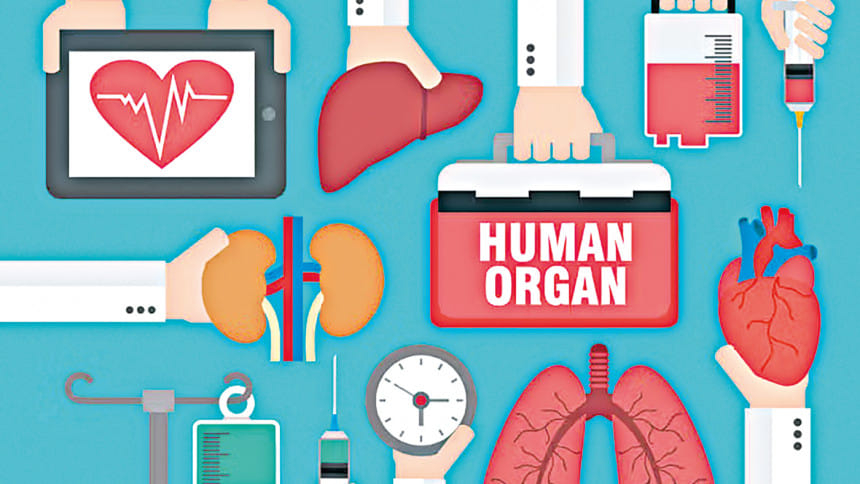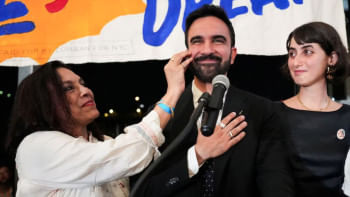Preventing illegal human organ trafficking

The Human Organ Transplantation Act 1999 has been enacted in Bangladesh to prevent commercial organ trade. Section 2A of the Act says that no hospital can transplant human organs without permission from the government. According to section 3, a healthy person with a sound mind can donate his/her organs for transplantation to a close relative if there is no fear of it disrupting his/her everyday life. If the person has been declared 'brain-dead', any of his/her legal heirs can permit in writing the transplantation of the organs from the body of the person.
Section 9 of the Act strictly prohibits buying and selling human body organs or getting any benefit in exchange and giving any advertisement or other kind of promotion. Section 10 of the Act further penalises the giving of false information about being close relatives, or encouraging, inducing or intimidating someone to make such false representation. Such person shall be punishable with rigorous imprisonment not exceeding two years or with a fine not exceeding five lakh takas, or both. In addition, if he violates any other provision of this Act or assists in the violation, he shall be punishable with rigorous imprisonment not exceeding three years or with a fine not exceeding ten lakh takas, or both. The doctor, if convicted, will get his/her registration canceled by the Bangladesh Medical and Dental Council.
Section 10A of the Act further enunciates that if any offence is committed by any hospital under this Act, the hospital's permission to transplant organs will be canceled, and a fine will be imposed. However, the author believes that despite existing laws, illegal organ trade is not being prevented or controlled. This is because firstly, there is a lack of implementation of the law in our country. Secondly, the Act has made it too narrow as to who can do voluntary donate organs for transplantation, creating obstacles for emergencies. India's Transplantation of Human Organs and Tissues Act 1994, and Transplantation of Human Organs and Tissues Rules 2014 state that other emotional donors can donate their organs apart from close relatives.
In 2017, a writ petition was filed in the High Court Division (HCD) challenging the provisions that limit such donations. Then, in 2019, the HCD directed the government to amend the law to address this problem. Indeed, the government should amend the law and increase the punishment and fine so that illegal organ trafficking can be prevented in society; otherwise, such crime will only increase day by day. On the other hand, those who are 'emotional donors', should be allowed to donate. These amendments are urgently needed to address a pressing need of the society.
The writer is student of law, University of Asia Pacific.

 For all latest news, follow The Daily Star's Google News channel.
For all latest news, follow The Daily Star's Google News channel. 



Comments